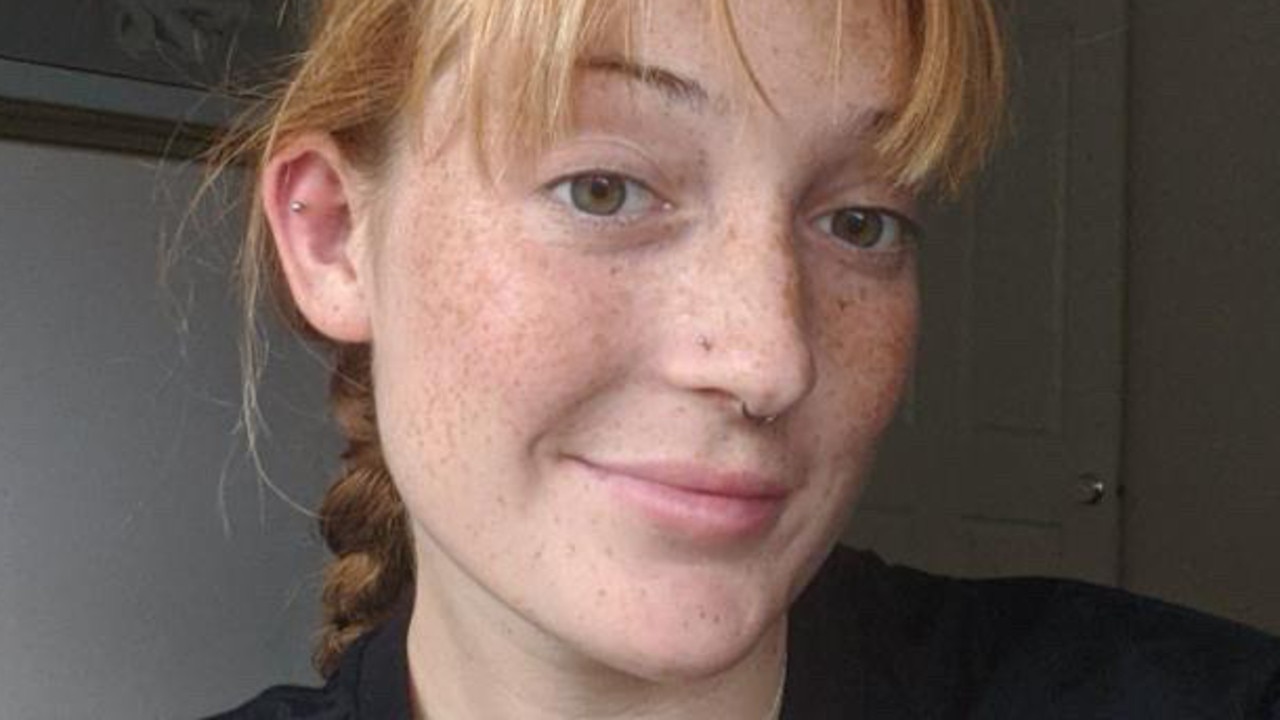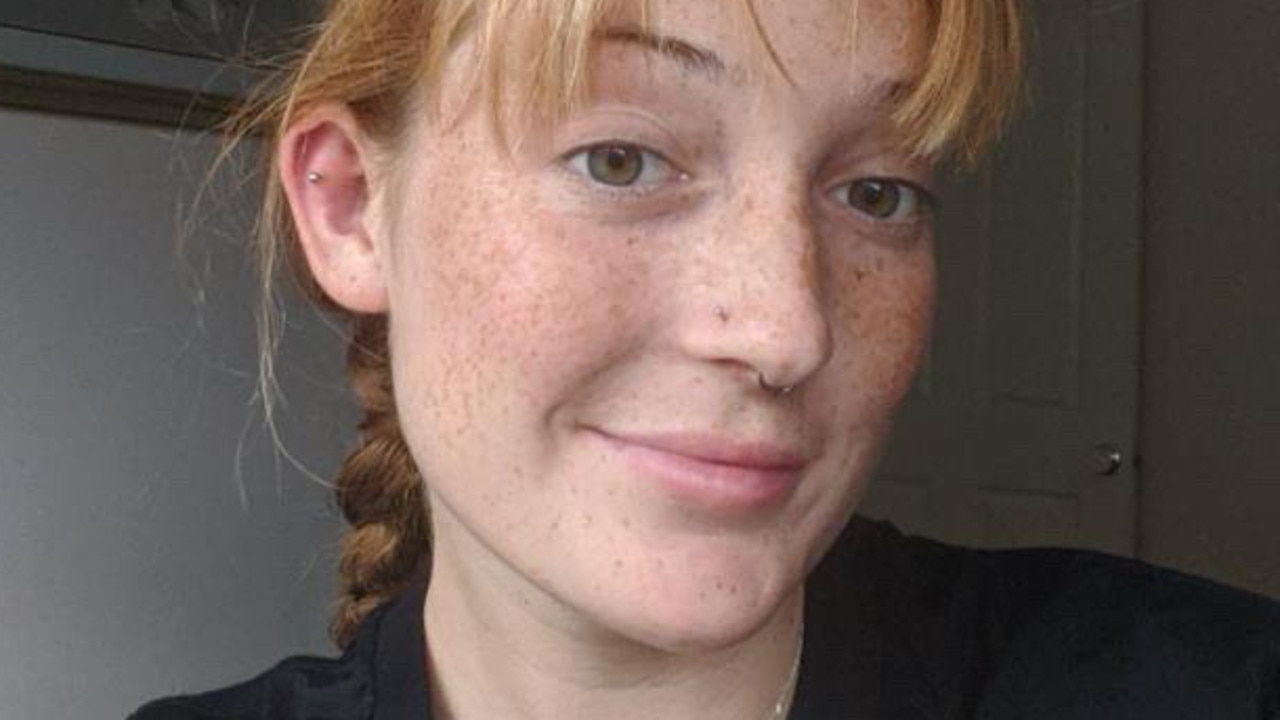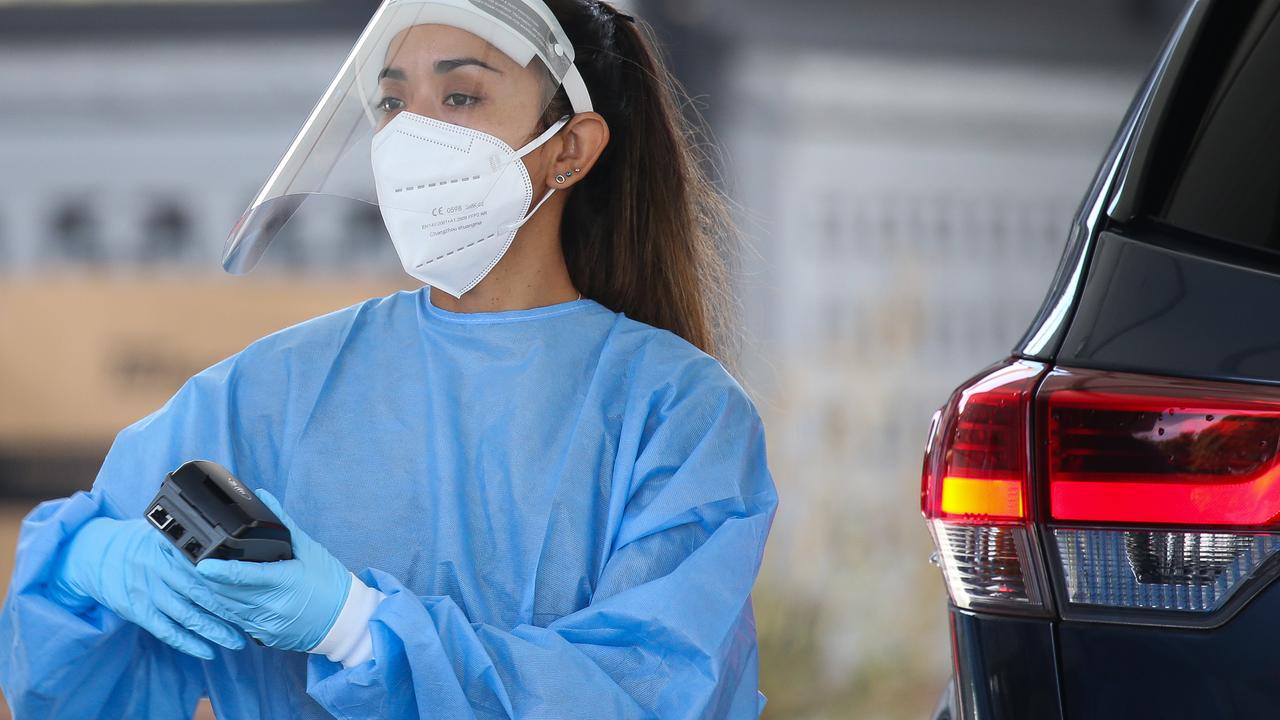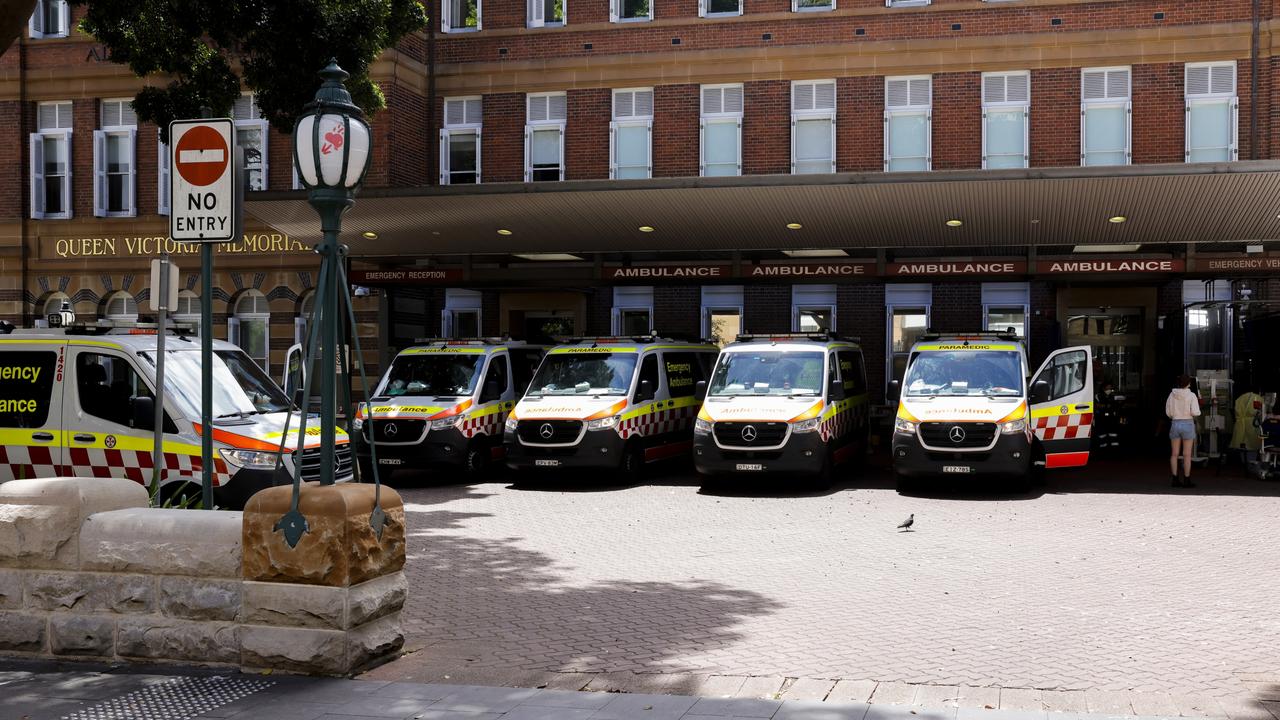Teen’s unexplained symptoms after recovering from Covid-19
Ashley Halliwell was asymptomatic and convinced she didn’t have Covid-19. But since recovering from the virus, it’s been a very different story.

When Ashley Halliwell became infected with Covid-19 over the New Year break, she had no symptoms at all. But strangely, that all changed for the 18-year-old after she was clear of the infection.
Ms Halliwell, who lives in Queensland, was in NSW for Christmas and the New Year when she was deemed a close contact of a case on January 5. Being asymptomatic, she told news.com.au she was “convinced” she hadn’t caught the virus.
Despite receiving her positive test result on January 9, she said she “did not display any symptoms” throughout her infection.
But a week after her initial recovery, she began developing a “dull pain” in her lower back and “some pretty serious fatigue”.
“I have never been someone who experienced back pain, nor was I someone who experienced fatigue during the day,” she told news.com.au.
“The back pain sets in as soon as I wake up and then gets milder throughout the day. The fatigue is constant. I’d call it fatigue-induced brain fog.”
She said she sought medical advice after she had Covid, to let doctors know about her “prolonged symptoms”.
“My message for other young Australians like myself is that although it seems inevitable that you’re going to contract Covid, please stay cautious,” she said.

It’s been more than two years since the coronavirus pandemic began, and long Covid is a phenomenon we are still getting to grips with.
Ed Yong, a science writer at The Atlantic, whose collection of work on long Covid in 2020 earned him the 2021 Pulitzer Prize for Explanatory Reporting, told news.com.au that he is still receiving emails from “long-haulers” who’ve been dealing with symptoms since near the start of the pandemic, and others who’ve started down that path more recently.
Yong said that even “conservative” estimates would put those facing long-term issues at “tens of millions of people worldwide”.
“Some of those people will recover, but others will be disabled for the foreseeable future,” he said.
Serious symptoms
More than 200 different symptoms across 10 organ systems have been associated with the post-Covid condition, according to research conducted in Canada late last year.
The most common symptoms include fatigue, shortness of breath, pain, sleep disturbances, anxiety and depression.
“The standard symptoms we’re familiar with from countries overseas that have had much bigger pandemics thus far … have been ongoing, debilitating fatigue, brain fog going on and on and it seems that people have a wide range of other subsidiary symptoms,” Associate Professor of Health Systems Financing & Organisation at Deakin University Martin Hensher told news.com.au.
“Most people have different combinations but almost everybody has debilitating and ongoing fatigue.”
“People start to feel better and then often overdo it and relapse.”
Other symptoms include effects on the brain like cognitive impairment or brain fog. Heart symptoms can include chest pain and palpitations.
Lung symptoms can include breathlessness, shortness of breath and an ongoing cough.
“Other symptoms include muscle weakness and joint pain; stomach and intestinal symptoms such as diarrhoea; psychological effects like mood swings; and sensory symptoms such as changes to smell or taste,” Dr Tejal Patel, a pharmacy professor at the University of Waterloo in Ontario, said.
“Individuals may also have impaired physical functional status, including limitations in the ability to perform daily activities such as dressing or bathing, reduced ability to care for family members or dependants, difficulty returning to work and increased health care use.
“Long Covid can have real impacts,” Dr Patel warned.

One in four positive cases
The World Health Organisation (WHO) has reported that about one in four cases experience symptoms of long Covid for at least a month, and one in 10 experience symptoms lasting beyond 12 weeks.
In Australia, Associate Professor Hensher’s study from Deakin University examined the 2021 Delta outbreaks in Victoria and NSW where nearly 140,000 people had already been infected.
Before Omicron, he predicted the combined outbreaks may have already led to up to 20,000 Australians having developed long Covid.
Along with a piece for The Conversation, Associate Professor Hensher calculated that limited relaxation of public health measures “could generate 10,000 to 34,000 long Covid cases” while a complete relaxation of public health measures “could lead to 60,000 to 133,000 long Covid cases”.
Of that number, 2000 to 11,000 people might still be sick a year after their initial infection.
But those are underestimates in the current climate.
Associate Professor Hensher warned that with the current outbreak in Australia, it was “foolish” to think there wouldn’t be cases of long Covid.
“[It’s] possible that Omicron might behave similarly to earlier variants in terms of long Covid, because remember, with Delta and the original strain, from what we understand with long Covid, is that it’s entirely possible for people with quite mild infections to go on to develop long Covid.
“I think it would be foolish to assume that we won’t get significant long Covid cases coming out of this,” he said.
“There’s just so many people getting sick that that kind of arithmetic is going to crunch through.”
Does vaccination help?
Studies vary on the issue but the latest research from Israel published in Nature this week suggests “that people who have had both SARS-CoV-2 infection and doses of the Pfizer BioNTech vaccine were much less likely to report any of a range of common long Covid symptoms than people who were unvaccinated when infected.
“In fact, vaccinated people were no more likely to report symptoms than people who’d never caught SARS-CoV-2.”
The study, it said, has not yet been peer reviewed.
Last week, research from St Vincent’s Hospital in Sydney and the University of NSW’s Kirby Institute showed vaccinated people are at less risk of the debilitating effects of long Covid.
Researchers concluded that unvaccinated people who had even a mild Covid-19 infection have suffered a “sustained inflammatory response” for at least eight months following their infection”.
“One of the most surprising aspects of our analysis is that people don’t need to have had severe Covid to experience these ongoing immunologic changes,” said Dr Chansavath Phetsouphanh, a senior research associate at the Kirby Institute and co-lead author on the paper.
According to studies published in Nature, vaccines reduce the risk of long Covid because they are reducing the risk of contracting Covid-19 in the first place.
But reviews are mixed.
“For those who do experience a breakthrough infection, studies suggest that vaccination might only halve the risk of long Covid – or have no effect on it at all,” according to the Nature piece, citing research from The Lancet and medRxiv.
“I honestly thought the vaccine would protect against long Covid much more extensively,”
Yale University immunologist Akiko Iwasaki said.

What does the Government say?
The Federal Government has reported very little about long Covid, with a small section on the Health.gov website noting the existence of the condition.
“It is not yet known how long symptoms of long Covid will last,” it reads.
Associate Professor Hensher is just one of many experts urging the Government to do more.
“Fundamentally in Australia we don’t actually have any national or state and territory level, any real surveillance of long Covid cases. We’re actually not measuring them at the moment,” he said.
“We’re flying pretty blind on this.”
The Department of Health told news.com.au: “Synthesising and interpreting data on long Covid will require ongoing collaboration between academia and governments to inform decision-making at all levels.
“The Australian Government is actively monitoring the emerging research on long Covid.
“The Government has engaged state and territory governments on this issue via the Australian Health Protection Principal Committee and the Health Chief Executives Forum.
“Planning is under way to ensure that Australians who may experience long Covid receive appropriate rehabilitation.”
It noted the Australian Government “prioritised Covid-19 research, with over $430 million committed to date for vaccine development and capability, and treatments for Covid-19.
“Of these, $130 million has been made available from the Medical Research Future Fund (MRFF) for Covid-19 research.”
It noted the money funded through MRFF has supported “early research into the long-term health impacts of Covid-19, clinical trials to improve Covid-19 vaccination planning for Australians who are immunocompromised, and clinical trials focusing on the effectiveness of combining different Covid-19 vaccines.
It pointed to two projects that have been funded to study individuals who have tested positive in Australia “to improve understanding of the long-term health impacts of Covid-19 as part of this grant opportunity”; a $3.4 million funding boost announced in December last year to Murdoch University to “further its research into improving the understanding of long-term impacts of Covid-19 and develop new models to predict disease progression and tailor treatment”.
A further $1.7 million will go to the University of Melbourne “to investigate the effect that SARS-CoV-2 variants of concern may have on the brain”.
Yet Associate Professor Hensher told news.com.au the government’s response isn’t enough.
“This investment in research on long Covid and the other potential long-term impacts of Covid-19 infection is essential – but we will be seeing long Covid cases coming forwards for care in the coming weeks and months,” he said.
He urged that the government needs to take “rapid action to prepare and co-ordinate care for them now, not just funding for long-term research.”
Are you a “long-hauler”? Share your story – youngma@news.com.au






